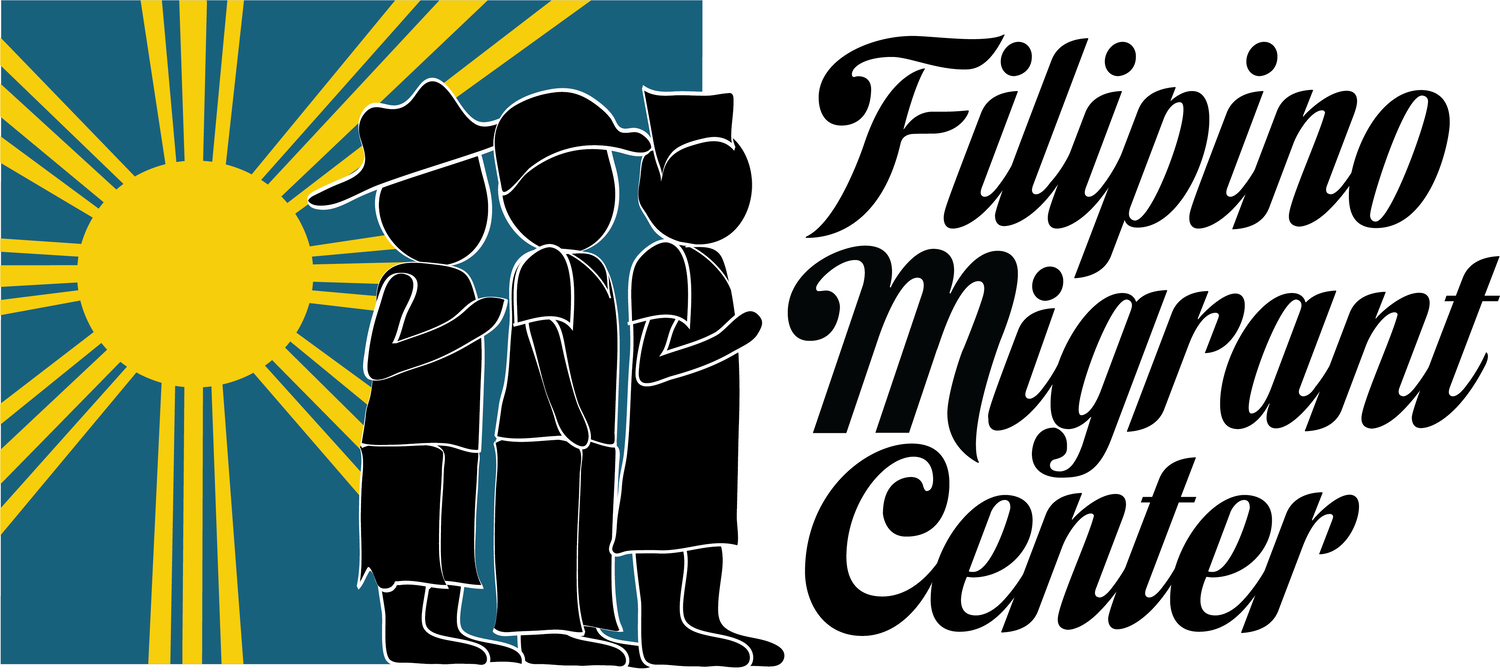Stop Labor Trafficking! End Forced Migration!
The Filipino Migrant Center believes that at the root of the problem of labor trafficking of Filipinos is the extreme poverty facing millions of families in the Philippines. According to the Philippine Department of Labor (2015), over 6,092 Filipinos leave the Philippines everyday in search of work in over 200 countries.
FMC has successfully assisted over 50 Filipino migrant workers who experienced labor trafficking to escape abuse and slave-like working conditions. With our support, they have received legal and social assistance and many have also reunited with their families. We provide leadership and community organizing training to migrant workers who are leading the campaign to organize trafficked Filipino migrant workers, educate, and engage communities about their struggle and demand justice to address the forced migration of Filipinos.
The U.S. Citizenship & Immigration Services (USCIS) defines labor trafficking as “the recruitment, harboring, transportation, provision, or obtaining of a person for labor or services through the use of force, fraud, or coercion for the purpose of involuntary servitude, peonage, debt bondage, or slavery.”
Our Response to Labor Trafficking in the Filipino Community
Support
As we continue to welcome and support new human trafficking survivors, we rely on our community partnerships to assist in meeting their needs. Survivors need a safe place to live, basic needs of food & supplies, community support, and assistance in applying for immigration relief.
Educate
We strive to educate Filipino and other community members on the issues of labor trafficking and how we can work with survivors to continue to raise awareness and support survivors.
Defend
We partner with Migrante Southern California, a Filipino immigrant worker’s organization founded by survivors of labor trafficking to defend their rights and welfare through engaging in campaigns, leadership development, and community organizing.
Ways We Address Labor Trafficking
Community educational presentations
Community forums & dialogues with survivors
Assisting survivors in self-filing for their T-Visa applications and connecting to relief resources
Linking survivors to community and social support
Leadership development and community organizing training for survivors
Signs of
Possible Trafficking
Barbed wire around buildings or buildings where people enter but don’t exit
People not knowing the location of their personal documents (i.e. Photo ID, passport, etc.)
Restricted movement and/or communication
Forced to work a job not described in their original employment contract
Large amount of debt as a result of coming to the U.S. to work
Receive threats from their employer or their family is threatened
Scared to speak out about working conditions

What can we do?
Contact us if you would like to learn more about our work, volunteer to be part of the campaign, support trafficking survivors we are currently working with, join our network, or invite FMC to give a presentation to your group, church, or organization. Contact Lester Ramos - lester@filipinomigrantcenter.org or Joselle De Los Reyes - joselle@filipinomigrantcenter.org



